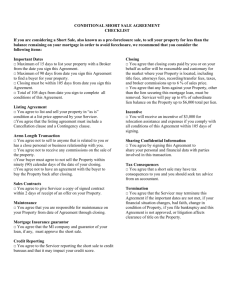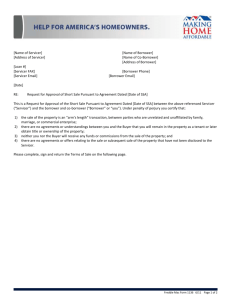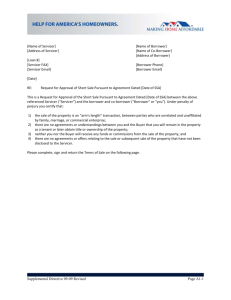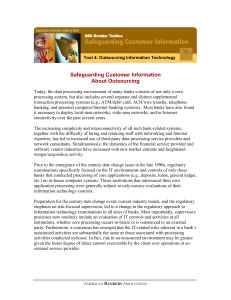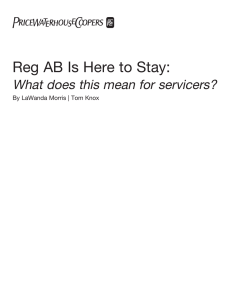Page 1
advertisement
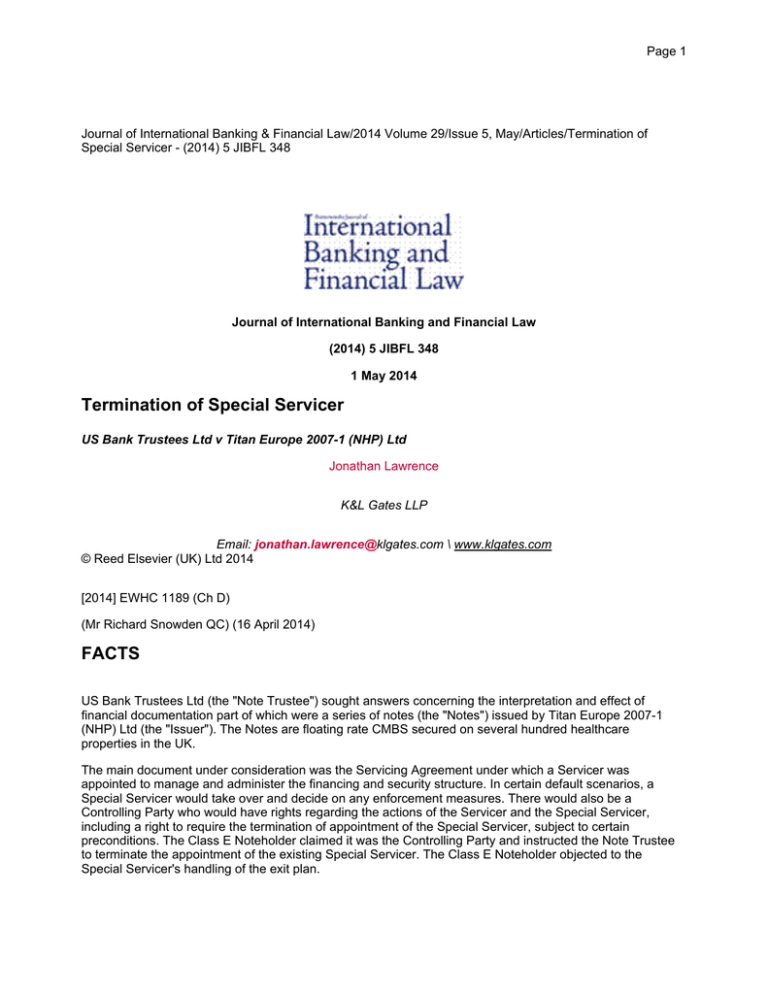
Page 1 Journal of International Banking & Financial Law/2014 Volume 29/Issue 5, May/Articles/Termination of Special Servicer - (2014) 5 JIBFL 348 Journal of International Banking and Financial Law (2014) 5 JIBFL 348 1 May 2014 Termination of Special Servicer US Bank Trustees Ltd v Titan Europe 2007-1 (NHP) Ltd Jonathan Lawrence K&L Gates LLP Email: jonathan.lawrence@klgates.com \ www.klgates.com © Reed Elsevier (UK) Ltd 2014 [2014] EWHC 1189 (Ch D) (Mr Richard Snowden QC) (16 April 2014) FACTS US Bank Trustees Ltd (the "Note Trustee") sought answers concerning the interpretation and effect of financial documentation part of which were a series of notes (the "Notes") issued by Titan Europe 2007-1 (NHP) Ltd (the "Issuer"). The Notes are floating rate CMBS secured on several hundred healthcare properties in the UK. The main document under consideration was the Servicing Agreement under which a Servicer was appointed to manage and administer the financing and security structure. In certain default scenarios, a Special Servicer would take over and decide on any enforcement measures. There would also be a Controlling Party who would have rights regarding the actions of the Servicer and the Special Servicer, including a right to require the termination of appointment of the Special Servicer, subject to certain preconditions. The Class E Noteholder claimed it was the Controlling Party and instructed the Note Trustee to terminate the appointment of the existing Special Servicer. The Class E Noteholder objected to the Special Servicer's handling of the exit plan. Page 2 CONCLUSION The Issuer was the Controlling Party, not the Class E Noteholder. Therefore the instruction to terminate the Special Servicer's appointment was invalid. The judgment contains a useful summary of the law on the interpretation of documents (at [25]). There was a difference of wording in various documents as to who was the Controlling Party. The intercreditor deed and the Servicing Agreement provided it was the "Representative of the A Loan" and the Offering Circular that it was the "Controlling Class Representative". The Judge took the Servicing Agreement as the determinative document for interpretation purposes. The parties to the Servicing Agreement had two potential formulations by which to identify the Controlling Party -- either that in the intercreditor deed or that in the Offering Circular. "Representative of the A Loan" must have been intended as a reference to the Issuer. The Issuer was the only lender in respect of the A Loan. A Noteholder does not fall naturally within the concept of a Loan Representative. A Noteholder could not claim to be a lender. It was not a misuse of language to describe a sole lender as representing itself. In addition, the intercreditor deed was a contractual document that required the Servicing Agreement to take a particular form. The Offering Circular was not a contractual document and contained a statement that all information contained therein was qualified in its entirety by the deal documentation. As the Offering Circular did not accord with the contractual documents, this may simply have the result that Noteholders might have claims in respect of the Offering Circular. Other interpretation issues included the approval of a successor Special Servicer. The clause in the Servicing Agreement clearly contained two separate requirements: (i) the proposed successor should have relevant experience; and (ii) be approved by the Note Trustee and the Issuer. Past experience was therefore only one of the factors that the Note Trustee and the Issuer could take into consideration.
